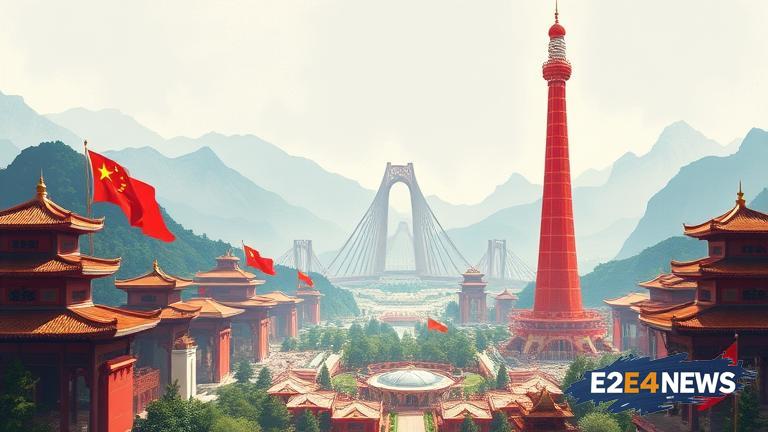China has recently unveiled an ambitious plan aimed at boosting its economic growth, expanding its global influence, and cementing its position as a major world power. The plan, which was announced by top Chinese officials, outlines a series of strategic initiatives and policy measures designed to drive innovation, increase trade and investment, and enhance cooperation with other countries. According to the plan, China will focus on developing its high-tech industries, such as artificial intelligence, renewable energy, and biotechnology, in order to create new growth drivers and increase its competitiveness in the global market. The country will also invest heavily in infrastructure development, including the construction of new transportation networks, energy systems, and digital infrastructure, in order to support its rapidly growing economy. In addition, China will strengthen its trade and investment ties with other countries, particularly in the Asia-Pacific region, through the implementation of new trade agreements and the establishment of economic cooperation zones. The plan also emphasizes the importance of enhancing global governance and promoting international cooperation on issues such as climate change, sustainable development, and global security. China will work closely with other countries to address these challenges and promote a more equitable and sustainable world order. The plan has been welcomed by experts and business leaders, who believe that it has the potential to drive significant economic growth and increase China’s global influence. However, some analysts have also expressed concerns about the potential risks and challenges associated with the plan, including the potential for increased debt and environmental degradation. Despite these concerns, the Chinese government is confident that the plan will be successful and will help to achieve its goal of becoming a global leader by 2035. The plan is also seen as a key component of China’s broader strategy to promote its national interests and increase its influence in global affairs. China’s economic growth has been slowing in recent years, and the plan is seen as a way to revitalize the economy and restore growth. The country’s leaders believe that the plan will help to create new opportunities for economic growth and development, and will enable China to play a more prominent role in global affairs. The plan has also been seen as a response to the growing competition from other countries, particularly the United States, which has been seeking to challenge China’s growing influence in the region. China’s leaders believe that the plan will help to strengthen the country’s position and increase its competitiveness in the global market. The plan is also expected to have significant implications for China’s relations with other countries, particularly in the Asia-Pacific region. China will need to work closely with its neighbors and other countries in the region in order to implement the plan and achieve its goals. The plan has been welcomed by many of China’s neighbors, who see it as an opportunity for increased cooperation and economic growth. However, some countries have also expressed concerns about the potential implications of the plan, particularly with regard to China’s growing military presence in the region. Despite these concerns, China’s leaders are confident that the plan will be successful and will help to promote peace and stability in the region. The plan is also seen as a key component of China’s broader strategy to promote its national interests and increase its influence in global affairs. China’s economic growth has been slowing in recent years, and the plan is seen as a way to revitalize the economy and restore growth. The country’s leaders believe that the plan will help to create new opportunities for economic growth and development, and will enable China to play a more prominent role in global affairs.





